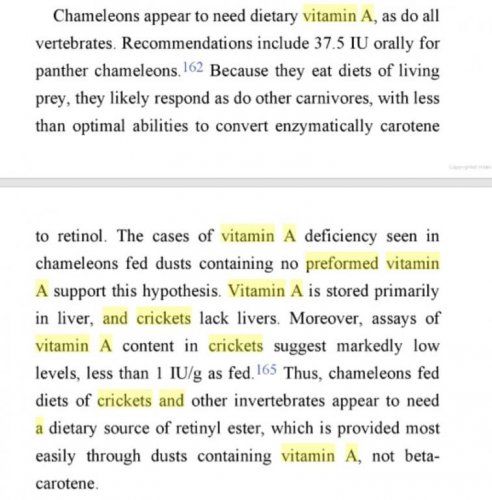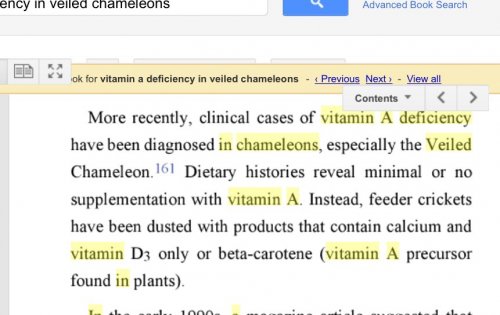jajeanpierre
Chameleon Enthusiast
Don't chameleons get most of their Vitamin A from the eyes of insects? Don't smaller insects have more Vitamin A because their eyes are larger compared to their bodies?
I think a large part of the problem is that instead of using insects that have been raised on healthy natural foods in the wild and live outside in natural light, we are feeding insects that are raised on the cheapest garbage that will grow the insects the fastest, plus they never see natural sunlight.
The same is true for many farmed animals. The chicken you buy today is not the chicken you ate 50 years ago. The chicken in the grocery store is a whopping 5 weeks old. If a human had the same growth rate as the modern broiler chicken (patented with only two hatcheries suppling all commercial meat chicks--Cornish X--in the world), it would be the equivalent of a 700 pound three-month old baby. They grow so fast, their organs and skeleton are not able to support their body mass. They are so deviant from normal, you can't even grow them to maturity because they die of heart or kidney failure. Chicken in a grocery store is not nutrient dense at all. It is garbage.
The same holds true for farmed fish. While (wild caught) salmon is high in really beneficial fatty acids, farmed salmon is not.
You can taste the difference between the eggs of free range chicken that hunt their own food and factory-farmed eggs. The factory produced eggs have very little nutrition.
Ditto for farmed beef. A grass fed animal is just superior nutritionally. Finished beef is fed mainly corn. Things like expired candy goes into commercial feed. How can that produce nutrient dense meat? Garbage in equals garbage out.
I would be very careful about feeding raw meat to feeder insects. Botulism is a real risk.
I think a large part of the problem is that instead of using insects that have been raised on healthy natural foods in the wild and live outside in natural light, we are feeding insects that are raised on the cheapest garbage that will grow the insects the fastest, plus they never see natural sunlight.
The same is true for many farmed animals. The chicken you buy today is not the chicken you ate 50 years ago. The chicken in the grocery store is a whopping 5 weeks old. If a human had the same growth rate as the modern broiler chicken (patented with only two hatcheries suppling all commercial meat chicks--Cornish X--in the world), it would be the equivalent of a 700 pound three-month old baby. They grow so fast, their organs and skeleton are not able to support their body mass. They are so deviant from normal, you can't even grow them to maturity because they die of heart or kidney failure. Chicken in a grocery store is not nutrient dense at all. It is garbage.
The same holds true for farmed fish. While (wild caught) salmon is high in really beneficial fatty acids, farmed salmon is not.
You can taste the difference between the eggs of free range chicken that hunt their own food and factory-farmed eggs. The factory produced eggs have very little nutrition.
Ditto for farmed beef. A grass fed animal is just superior nutritionally. Finished beef is fed mainly corn. Things like expired candy goes into commercial feed. How can that produce nutrient dense meat? Garbage in equals garbage out.
I would be very careful about feeding raw meat to feeder insects. Botulism is a real risk.







